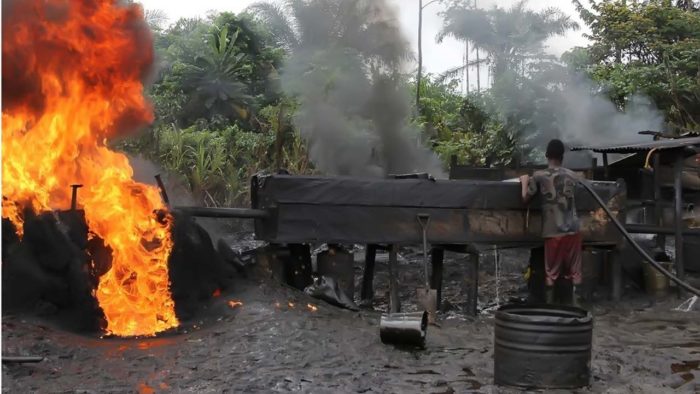Avoid Reckless Money Printing To Fund Deficits, Experts Warn
Five days after Edo State Governor, Godwin Obaseki, released a bombshell, saying Nigeria was in huge financial trouble after the Federal Government printed N60 billion as part of federal allocation distributed to states for March, the Presidency yesterday described the statement as complete falsehood.
The Minister of Finance, Budget and National Planning, Zainab Ahmed, at a briefing after the 41st virtual Federal Executive Council meeting chaired by the Vice President, Prof. Yemi Osinbajo, described the governor’s claim as very sad and untrue.
According to her, monies distributed at Federation Account Allocation Committee (FAAC) are revenues generated from the Federal Inland Revenue Service (FIRS), Nigeria Customs, Nigerian National Petroleum Corporation (NNPC), adding that revenue distribution is information that can be publicly accessed at the ministry’s website.
“The issue that was raised by the Edo State governor, for me, is very sad because it is not a fact. What we distribute at FAAC is revenue that is generated and in fact, distribution revenue is public information. We publish revenue generated by FIRS, the Customs, and the NNPC and we distribute at FAAC. So, it is not true to say we printed money to distribute at FAAC. It is not true,” she said.
the minister added that despite Obaseki’s alarm over the country’s rising debt profile, the nation’s debt was still within sustainable limits. “On the issue of the borrowing, what we need to do, as I have said several times, is to improve our revenue to enhance our capacity to service, not only our debt obligations, but the needs of running government on day to day basis. So, our debt, currently at about 23 per cent to GDP, is at a very sustainable level. You can look at all the reports that you see from multilateral institutions, those facts are stated.”
ACROSS the world, many times, governments have two basic choices for financing their deficits: they can borrow (issue debt) or raise taxes. And with economists estimating that the coronavirus recession will cost the world’s governments more than $11 trillion, governments are looking towards a third option, which is the unconventional ‘ways and means’ of printing money.
In a recent paper in the Yale Journal of Financial Crises, the third option was proffered where central banks were advised to consider bona fide debt monetisation – money printing – to help their governments cover some costs.
Money printing, more technically known as monetisation or “money-financed fiscal programmes” occurs when the government finances itself by issuing non-interest-bearing liabilities. Those liabilities could be currency or they could be reserves that banks hold at their central bank.
BUT despite the disclaimer, economists and financial experts have warned that Nigeria faces the risk of falling off the fiscal cliff if the Federal Government continues its reckless reliance on ‘Ways and Means’ to fund its widening deficits. The experts said Obaseki’s revelation reflects the sad reality of the economy and that the future appears increasingly bleak except the trend is reversed.
While every country prints money, the experts are concerned that with an inflation rate that is tending towards 20 per cent and extremely low productive capacity, the economy cannot absorb a reckless money supply expansion.
Reacting to the controversy, Dr. Bongo Adi, an economist at the Lagos Business School, said it is difficult to determine the extent of mess Nigeria’s ‘Ways and Means’ financing has caused as nobody knows the amount printed so far. He, however, warned that the economy cannot bear an unrestrained expansion of the money supply, which he blamed for the current stagflation and associated challenges.
He said Nigeria faces the risk of hyperinflation on a medium to long-term basis except the trend is reversed. “The economy is shrinking while the inflation rate is extremely high. There is also a high unemployment rate just as taxes are a serious burden. When you go ahead to print money, you are complicating the issue. That is what the current challenge has caused,” he said.
But Ken Ife, a professor of economist and consultant to the Economic Community of West African States (ECOWAS), said Obaseki’s allegation should be taken with a pinch of salt as every country prints money at some point “as long as the underlying conditions” are met.
According to him, the N60 billion the governor accused the Federal Government of printing in March amounts to less than 10 per cent of the money the federating units share monthly and par into insignificance when weighed against the country’s gross domestics product (GDP). Ife said the country’s economic fundamentals are strong, hence the bond listing for the first quarter was oversubscribed.
On how the alleged printing of money would affect inflation, the economist attributed the increasing inflation to cost-related issues, over-reliance on importation and insecurity. He referenced the high differential between core and food inflation to the role banditry and kidnapping plays in the rising inflation.
Ife argued that money supply contributed only about 20 per cent to the inflation. With the current high unemployment rate, he argued that it was illogical to attribute the high inflation rate to demand and high money supply.
Another economist, Johson Chukwu, said the Central Bank of Nigeria (CBN) has been providing financial support to the Federal Government to boost its revenue and that the government has overdrawn its account with the monetary authority. Chukwu, who described the fiscal situation as precarious said the country’s revenue could not support its total debt and that something urgent must be done to boost income generation.
He pointed out that the fiscally unsustainable development, is contrary to the government’s pledge to deploy all borrowed funds to the development of critical infrastructure to expand the productive capacity of the economy.
Chukwu noted that with the dwindling revenue and increasing debt profile, the government must hasten to tackle the economic challenges by providing the infrastructure to Nigerians to walk their way up to a better future.
“Government is in a difficult position. That the government prints is a statement of fact but what I cannot vouch for is how much that is involved. The CBN has been providing financial support to the Federal Government but that support has been overdrawn.
“Assuming the figure the governor quoted is correct, the figure is not up to a quarter of what it borrowed last year. The government borrowed N5.3 trillion at the end of November 2020, it could only borrow N2 billion by the issuance of the bond and the balance from the CBN. Government must recognise that it does not have revenue profile to fund infrastructure,” he said.





